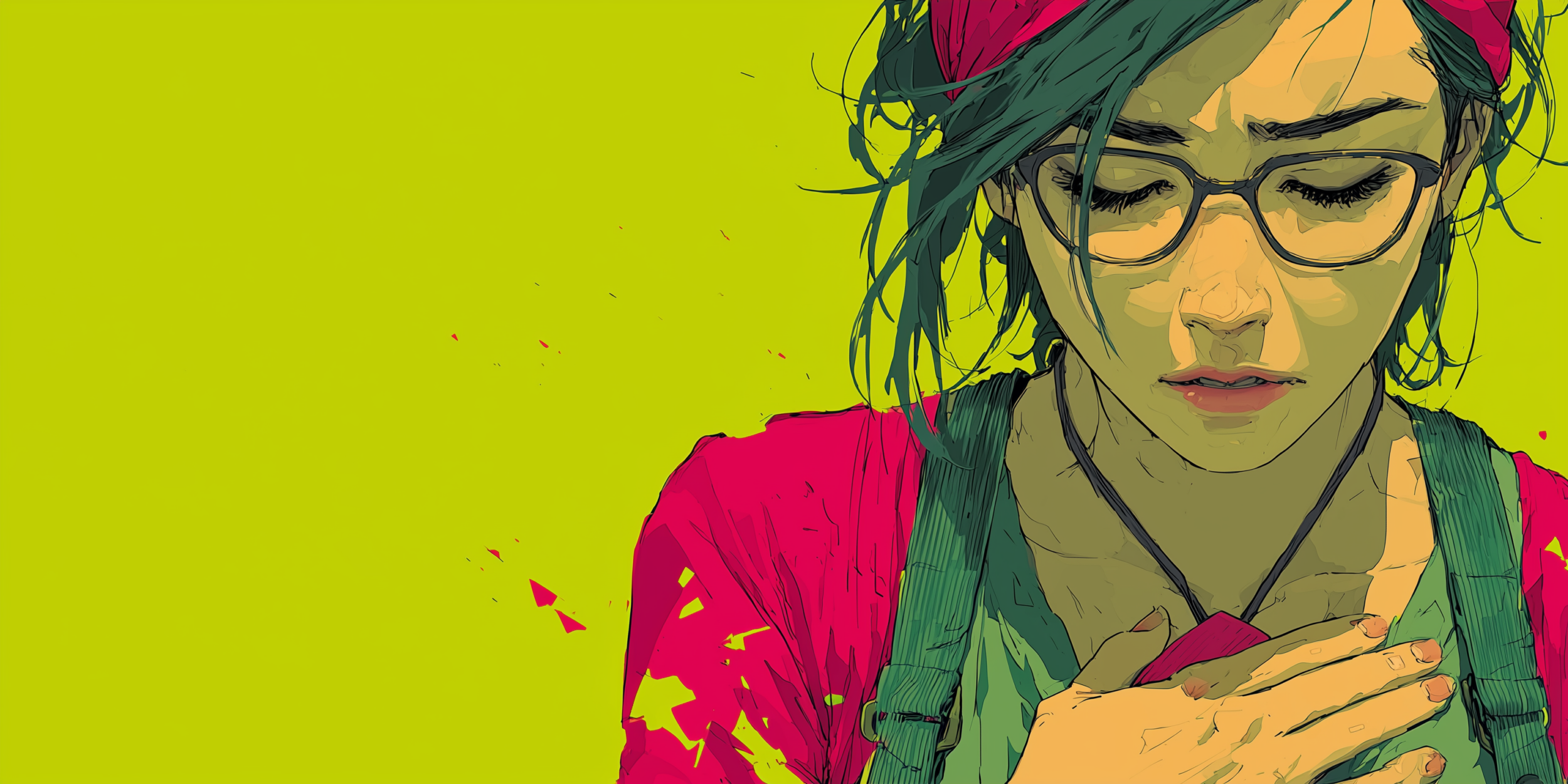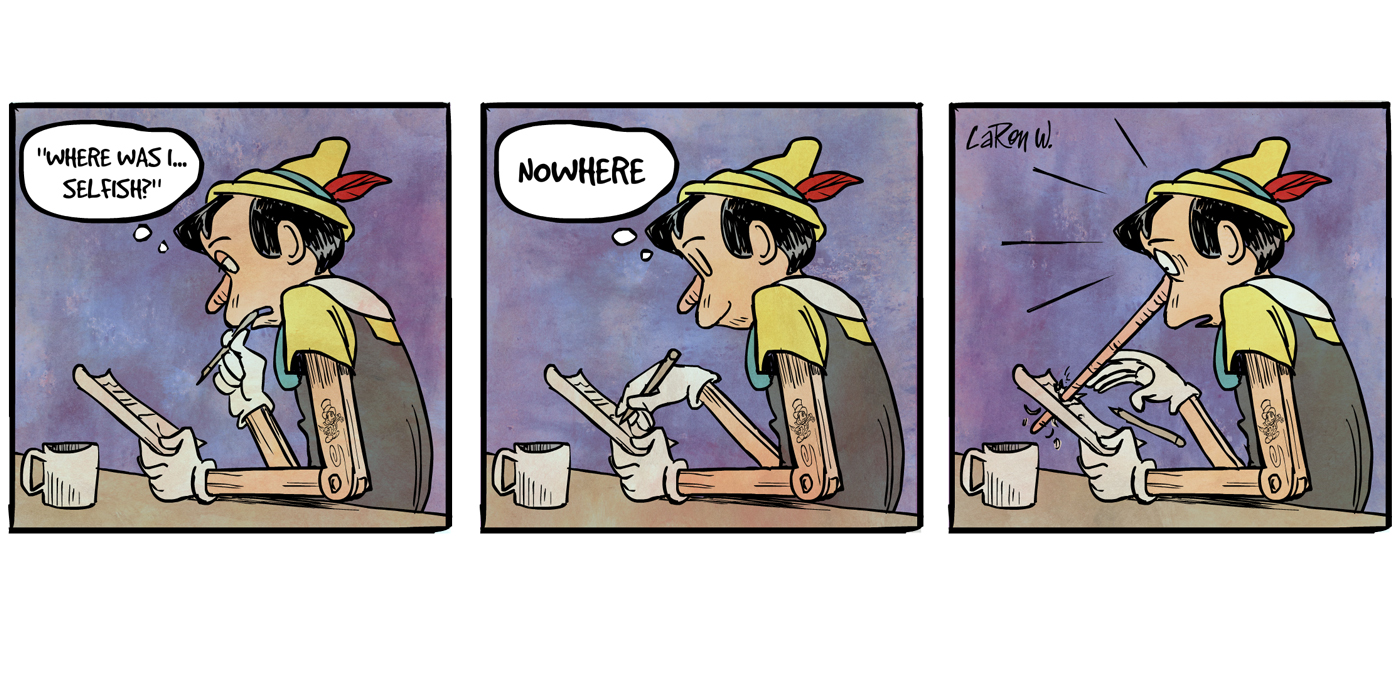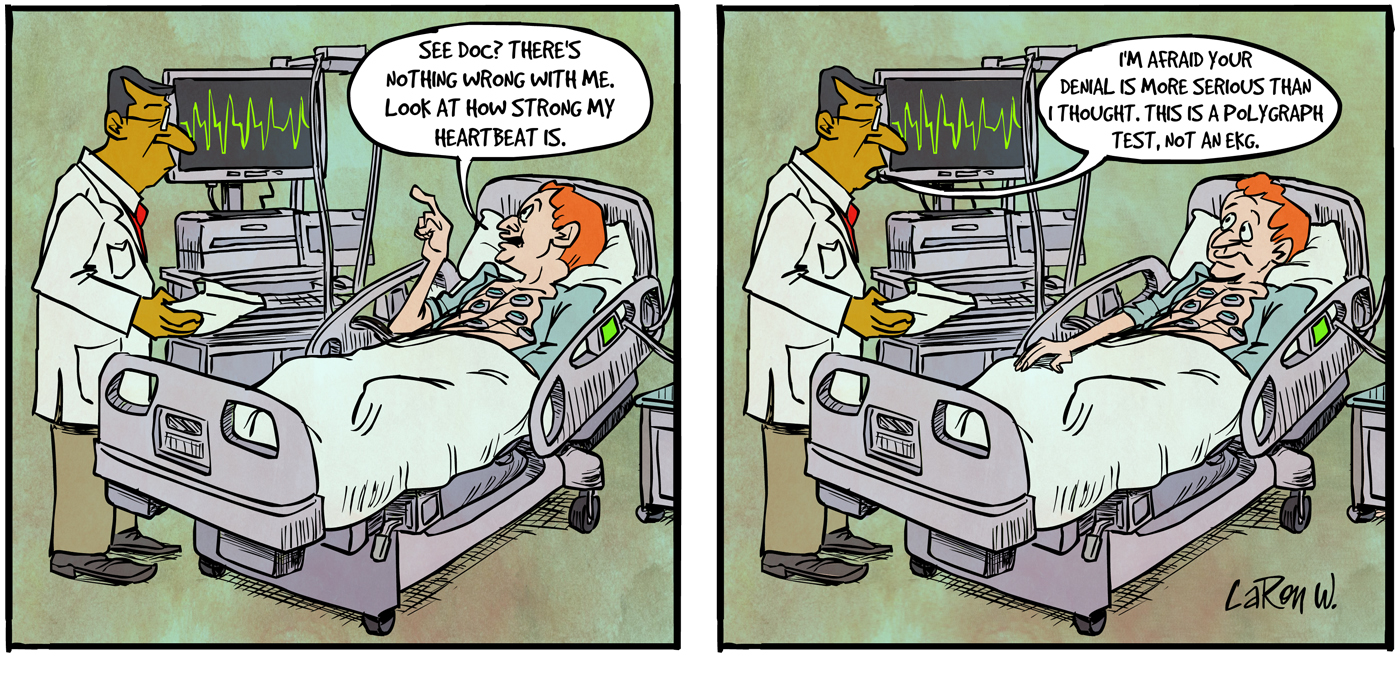My name is L.A. and my sobriety date is August 19, 2000.
One of my favorite passages in the literature is a quote from the Big Book: “We have found much of heaven and we have been rocketed into a fourth dimension of existence of which we had not even dreamed. … The central fact of our lives today is the absolute certainty that our Creator has entered into our hearts and lives in a way which is indeed miraculous. He has commenced to accomplish those things for us which we could never do by ourselves” (AA 25).
I think we should read this passage to every newcomer at his or her first meeting. If I had heard this when I first walked through the doors of SA, I might have understood that no matter how far away that fourth dimension seemed to me at the time, that was where I was headed. I still need to remember that every day. Newcomers need to know that all of us together are headed to the realm of the miraculous.
As a kid I was lonely and ashamed of myself. By the time I was three years old, I had deep contempt for myself. I believed that I was ugly and of no use to anyone. I struggled with constant negative feelings and did anything I could to get out of the moment.
At times I would lose myself in music. I would shut the door of my room, turn my record player up full blast, and immerse myself in classical music—and I was gone. Another escape was reading biographies of heroes. I would lose myself in the story, thinking, “If only I could be like that football player at Notre Dame, or that famous aviator.…” I wanted to merge into the other person’s life.
As a boy, I felt self-conscious playing sports or army men. When I was around other boys I thought they hated me and didn’t want me around. I also rejected the boy inside of me. I felt hopeless, and I didn’t trust my parents enough to talk to them about these things. I thought my problems were their fault, so I shut them out. I remember deciding at the age of three that I would be my own parent. My brother and two sisters also had their own issues with life at home, but I didn’t trust them enough to open up to them either.
Starting when I was twelve, I would disappear for six or seven hours at a time to escape the stress I felt at home. I would leave our home in North Jersey and walk all the way to the New York border and back again. My parents questioned me about where I’d been, but I just gave them vague answers. I did anything I could to get out of the house.
As an early teen, I constantly ate sweets—secretly, in the pantry. I also started binging and purging. This went in parallel with a secret addiction to pornography and masturbation. These were the only things that—at least temporarily—offered relief for my constant self-contempt. I wanted to be anybody but me. I would look at another boy and think, “He’s athletic and good looking. I want to be him. I want what he has.” I couldn’t be truly close to any boy because of this constant desire to merge into him. My variation on “Please connect with me and make me whole!” (SA v) was, “Please let me become you.”
My brother and I and several other kids had a secret porn club. I felt ashamed looking at female porn. It was as if the women were looking back at me saying, “You’re contemptible; you’re not worthy of looking at me.” I would masturbate several times a day, but only to male images. I felt that I first needed to become a man, like the men I saw in the male porn, before I could move onto females.
I tried to understand what was going on with me. Back then, if a guy looked at male pornography, that meant he was gay. So one day when I was 15, I told my brother that I thought I was gay. He said that it was okay and no big deal, but the label never felt right to me. I didn’t really know what it meant at the time. I was just mimicking what others told me I should be saying.
By age 17 I decided I wasn’t gay and I got a girlfriend. One weekend we became intimate—not to the point of intercourse, but for me this was a real crossroads—and this caused major stress. In fact I was so stressed that on that same weekend, I acted out with a man anonymously for the first time. I was filled with confusion and shame. But soon, acting out anonymously with males became my new high. It became the only thing that seemed to numb the pain.
Then the need for “different,” “better,” and “more” (SA 139) kicked in. I was getting choosier about my partners. But being picky took more time, so my pursuits would take a good part of the night.
In my 20s, I began experiencing consequences. I made 10 or so visits to STD clinics when I experienced symptoms. I’d say, “Just give me something to get me out of this.” As soon as I was feeling better, I went back out there. And things got worse: police chases, citations, and muggings at knifepoint at places where I acted out. Nothing stopped me. At the height of it all, I was drinking coffee all day long, working full-time, acting out during the day, going to grad school at night, and then almost every night acting out again—often into the next morning. I would get four to five hours of sleep. This went on for years.
I don’t know how I lived through that period but somehow God saved me. I was terrified to stop and look at my behavior. At times I would ask myself, “What’s underneath all this?” Then one day someone said, “Why don’t you just embrace what’s true and enter the gay lifestyle?” I thought, “Okay, I’ll give it another shot.” I went back into that lifestyle with gusto. I joined a gay church, went to parties, and got into organizations and then relationships. This never felt right, but I suppressed those thoughts, dreading that there was really no place for me anywhere.
Four years later, I visited a friend at an in-patient treatment center, and it was there that I first admitted that I too had an addiction. I knew that this friend had been attending SA meetings, but before I always thought, “That poor guy, how messed up he must be to have to go to SA.” When he told me that the meetings were great, I always tuned him out. But now I wondered whether I might need them as well. So I went to my first SA meeting on October 30, 1989, at a church in Washington, D.C. That was the turning point of my life.
When I walked into that meeting, I was amazed at the openness I found. I knew I needed what they offered, and I was struck abstinent. I guess by then my body was so completely worn out from all my acting out that I was completely spent. I got sober, but I was still living in the gay lifestyle, and I felt rejection for that in the SA rooms. I fought the sobriety definition tooth and nail. I thought, “That definition is against me and all of us like me.”
I also fought Roy K. (our founder) as well as the people in my meetings. I joined the “rebels” in our program who were trying to change the sobriety definition to “spouse as you understand spouse.” I would go to conventions, stand up, and rail at the fellowship. I would say, “You’re discriminating against me. Don’t you know I need this program as much as you do?” This was the best I knew then. I think I was really trying to say, “People, I’m dying, please don’t reject me.”
Despite my rebellion, Roy was always kind to me. One day he said to me, “Just keep coming back, don’t use, and watch what God does.” I couldn’t stand Roy’s kindness at the time. I thought, “That’s easy for you to say.” I couldn’t think about God; I had rejected Him.
But then my heart inexplicably started to soften. I didn’t know what was coming over me. I learned later that others in the fellowship had been praying for me.
God began giving me visions of who He had created me to be and of the manhood He was calling me into. He showed me where the pull of wanting to be someone else had come from. He began to affirm the rejected boy inside of me, the masculinity He had given me. He was healing my deep fear of men. That’s what I was missing—what I was yearning for—all those years.
God started showing me that the male drive toward men is normal. I began to see that little boys at a certain age make heroes of their dads. They need to feel their dads’ muscles and beards and everything about them. That’s God-given, because they’re learning what it means to be a man. They’re boys, identifying with the masculine. Somewhere along the line, that process never fully happened for me. It’s nobody’s fault, it’s just a fact.
God spoke to me that all men are created to feel a longing for brotherly love. I understood that my entry into the gay lifestyle was really a search for identity, which I was now receiving from God. I left the lifestyle because I had found something that finally rang true for me.
I began to see that God made me a man, no different from other men. He was maturing that man right there and then. I began looking at men differently. I didn’t want to make lust objects of them anymore. I wanted to be friends with men as whole persons—to relate to them in strong, healthy, brotherly love. Some of these men were from my church, but most of them were my friends in SA. One day, I stepped out in faith and went on a fishing trip with the church men’s group. I would have hated this before, but now I loved it.
I began to see that Roy was right. God was doing something I could never have predicted. As all of these missing pieces were coming together inside of me, I started walking a little straighter. I did my best to follow God and pray, and I wanted to devote my life to Him.
But then, when I had almost three years of SA sobriety, I took a detour. Something went off inside of me. I thought I heard God say, “Leave this program; you and I will do this together.” So I walked out of the fellowship, thinking, “It’s going to be okay now, because God and I are solid.”
I was in two other fellowships besides SA, and I left them all. This didn’t turn out well. I stayed out for eight years. I eventually lost my sobriety. In the year 2000, I ended up in a binge, returning to my old patterns of needing the male connection. I knew what I was doing, but I was despondent because I felt completely powerless to stop the cycle.
A few months later I crawled back to SA, convinced I’d be scorned and rejected, and that people would say, “You again? You’re back?” But—as many others have experienced—when I came back, all I found were love and open arms.
I got a new sponsor. I joined an accountability circle and started working all the Steps—not just One, Two, and Three as I had done before. I began hearing truth again from God, and it was replacing all the lies. I understood that although I might have read about the truth, or someone else could have told me the truth, I had to hear the truth from God Himself—because God is the source of all truth.
I began to see the truth about our program, and to admit that I’m powerless over lust, not over acting out. Even though I might not be engaging in acting-out behavior, if I’m still drinking in the look, then I’m drunk. In the past, I held on to the idea that if I didn’t touch, I could look all I wanted and keep my sobriety. But in truth I was already drunk just from looking. So I decided that my bottom line would include “no willful lust drinks.” And that’s when I started to see miracles happen—one after another.
The healing with my parents was the defining experience of my adult life. I had despised my mother for most of my life, but in 2005, I was able to make a sincere heartfelt amends to her. I had made a formal amends to her before, but (even though I was doing the best I could at the time) my heart wasn’t really in it. Then in 2005, God softened my heart toward her. I heard Him say, “Your mother is my precious daughter. I hold her in the palm of my hand, just like I hold you. I release you from the responsibility of holding her accountable for what she did; I’ve got her.” That was all I needed to hear. Instantly the hatred was washed away, and in came love, compassion, patience, and kindness for my mother.
I was with my mom this past May, on the day before she died. I spent the day caressing her hands, her face, and her hair. I told her how much I loved her, and that it was okay for her to go whenever she needed to. I never thought I would be sober and be able to do that when my mom passed on, but because of God’s grace, there I was.
When Mom died, I felt joy that she was being released into the hands of a loving God, and that she and I had been restored. And because of experiences like this one, today I know that recovery is about a personal relationship with God. Everything starts there.
I’ve been dating a woman for two and a half years. Two years ago I made a full disclosure to her. Her response was 45 seconds of complete silence—I could barely handle the suspense. Then she said, “I feel like I’m in the presence of holiness.” I wept. She saw the power of God to transform a human life. I understood how much God was blessing me with this woman, who looked to God first—and not to herself—for what this might mean for her. I was in awe that God would pour out his grace like this.
For the past 11 years, I’ve been in touch with one man in our program on a daily basis. That consistent, deep connection has made all the difference in my recovery. And even though I go to meetings and I do service, I understand today that my main partner is God. I’m the junior partner; God leads the way. And if I pay attention, I find that He’s speaking to me all the time.
The most valuable thing I do today in my recovery is go to business meetings. That may seem crazy to members who can’t stand them (I don’t really like them either), but at business meetings I can see what’s going on with me today. Am I in my defects today, or am I seeing victory? Is my heart open and accepting, or am I standing back in judgment? This is a real weathervane for me.
But the biggest change I see in myself is the daily recognition that my life is no longer mine. That’s the most profound spiritual idea I can imagine living, and that’s the change this program has made in me.
Each of us is a story in progress. Bill W. introduces the stories at the back of the Big Book by saying, “Each individual, in the personal stories, describes in his own language and from his own point of view the way he established his relationship with God” (AA 29).
So here again is our ultimate truth: “…our Creator has entered into our hearts and lives in a way which is indeed miraculous. He has commenced to accomplish those things for us which we could never do by ourselves.”
I’m forever grateful to God and to the SA fellowship for teaching me these things.
L.A.






